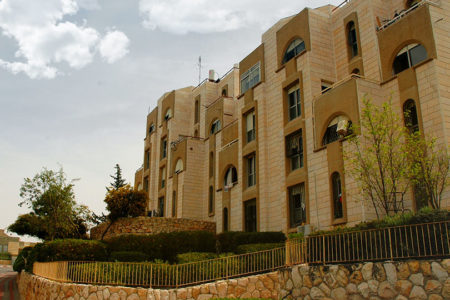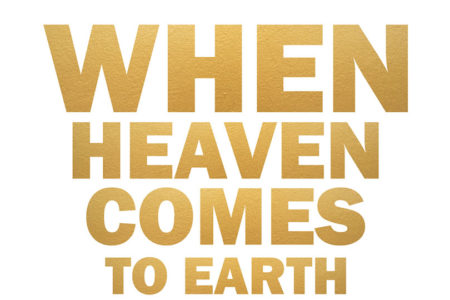End of the Two-State Solution
Listen to Chris Katulka’s interview with Soeren Kern about this article (begins @ 2:03).
U.S. President Donald Trump recently announced he will not insist on a two-state solution to the Israeli-Palestinian conflict. “I thought for a while the two-state looked like it may be the easier of the two. But honestly, if Bibi and if the Palestinians—if Israel and the Palestinians are happy, I’m happy with the one they like the best,” Trump said, referring to Israeli Prime Minister Benjamin Netanyahu by his nickname.
The two-state solution—a Palestinian state existing side by side with an Israeli state—has been a pillar of American policy in the Middle East for decades, going all the way back to the 1947 UN Partition Plan.
Although the foreign-policy establishment quickly criticized Trump, supporters countered that the never-ending Arab-Israeli conflict is proof that it is high time for a new approach. Still others claimed Trump’s openness to a one-state solution was a tactic to pressure the Palestinians to accept a deal on two states.
In any event, the two-state solution has failed for a number of reasons, all of which have their origin in Islamic doctrine. For example, the Palestinian leadership is divided between Fatah, which dominates the West Bank, and Hamas, which controls the Gaza Strip. Hamas, far from acknowledging Israel’s right to exist, is irrevocably dedicated to its destruction.
The Hamas Charter is unambiguous: “Israel will exist and will continue to exist until Islam will obliterate it, just as it obliterated others before it.” The charter further states, “Initiatives, and so-called peaceful solutions and international conferences, are in contradiction to the principles of the Islamic Resistance Movement.” And again, “There is no solution for the Palestinian question except through Jihad. Initiatives, proposals and international conferences are all a waste of time and vain endeavors.”
The Hamas Charter is based on the foundational Islamic doctrine that once Islam has conquered a land or territory, it must remain under Muslim dominion forever. According to Islamic law, even if Muslims lose control over a land or territory once occupied—as is the case with Israel, Spain, Portugal, and parts of Italy—they are obligated to return and reestablish Islamic rule there.
In other words, the root cause of the Palestinian-Israeli conflict is essentially theological, not political, even though the two-state solution rests on the supposition that the conflict is political, not theological.
Islamic doctrine also explains why Palestinians steadfastly refuse to recognize Israel as a Jewish state, a key Israeli demand. Addressing the UN General Assembly in September 2009, Netanyahu challenged Palestinian leaders: “We ask the Palestinians to finally do what they have refused to do for 62 years: Say yes to a Jewish state. Just as we are asked to recognize a nation-state for the Palestinian people, the Palestinians must be asked to recognize the nation-state of the Jewish people.” In the words of one analyst, “For the Palestinians to recognize Israel as a Jewish state is to declare their surrender.”
Another reason the two-state solution has failed is because Palestinian leaders have brainwashed an entire generation of young Palestinians into believing they should harbor a visceral hatred of Jews. This situation makes peaceful coexistence virtually impossible.
For example, Palestinian clergy, media, and school textbooks are notorious for promoting the narrative that Jews are less than human and for fostering a cult of martyrdom that glorifies killing them.
The alternative to the two-state solution is the one-state solution, which involves Israel formally annexing the West Bank and absorbing millions of Palestinians into Israel. Like the two-state solution, the one-state solution also has problems. Trump’s openness to pursuing a new approach to the Middle East, however, is a long overdue breath of fresh air for those who are concerned about the future of Israel.








